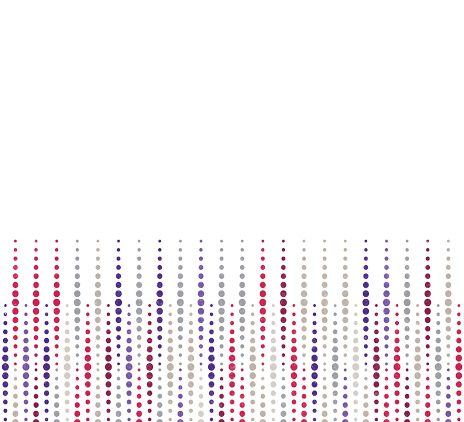-
Valuations
For organisations involved in a transaction, dispute, merger, acquisition or restructuring, the value of the company involved and its assets will be an important commercial consideration. A clear and thoughtful view of the respective value is therefore essential in such situations.
-
Due diligence
Due diligence identifies risks and examines potential financial, tax, legal or operational pitfalls. We offer robust due diligence services, clearly tailored to our clients' requirements.
-
Independent trusted advice
Do you want to sell your business or rather grow it through an acquisition?
-
Corporate reorganisations
Redesigning your group structure can mean significant cost savings and/or efficiency improvements. The restructuring provisions of the Companies and Associations Code (merger, demerger, contribution or transfer of branch of activity, etc.) provide you with the legal means to achieve this.
-
Legal support
Mergers and acquisitions represent a challenge for dynamic organisations. As a manager or entrepreneur, you want to look at this challenge from all sides to obtain the best conditions. That is why our professionals work on the basis of integral process management during merger, sale or acquisition processes.

-
Transfer pricing
Our experts help document your transfer pricing principles, intra company transactions and internal reporting and organisation. They design and implement settlement pricing structures for both national and multi-national companies. When services are centralized, they determine acceptable costs and margins.
-
Global mobility services
International employment has become a standard practice in today's HR policies. Nevertheless, it raises several questions for both the expat and the employer.
-
International tax & VAT
If your business has grown internationally or if you’re considering to take the step to expand abroad, you want to continue maximizing your efforts. Where domestic corporate tax laws may already be quite complicated, local legislation in other countries and international tax laws will most certainly add to the complexity of your business environment and organization.
-
IFRS reporting
IFRS reporting services for international groups and SMEs.
-
Financial statement audit
As a large organisation, you are required by law to appoint an auditor to report to the general meeting on the (consolidated) financial statements.
-
Agreed upon procedures
As an entrepreneur or manager, you may entrust specific work to your company auditor. The nature, extent and scope of these activities or procedures are always mutually agreed upon.
-
IFRS reporting
The European International Financial Reporting Standards (IFRS) have been mandatory for listed companies in the European Union since 2005. However, these standards also offer specific advantages for unlisted companies and SMEs.
-
Legal assignments
When significant events occur, the Companies Act imposes audit and reporting obligations on your company. In which cases is reporting required?
-
Transaction advisory services
As independent advisers, our transaction specialists offer independent advice, not just on the financial aspects, but throughout the transaction cycle. Their independence is beneficial both to buyers as well as sellers. Our advisers work according to a structured methodology, keeping track of all financial, operational and strategic elements.
-
Restructuring
Based on our "to-the-point" analyses, we identify with you the appropriate restructuring opportunities to help improve cash flows, results and balance sheet positions in the short term.
-
Internal audit
An effective internal audit function helps dynamic organisations better manage risks and turn them into opportunities.
-
Risk and compliance management
What are the risks to my business? What steps should I take to avoid these risks? Our business-risk advisers will be happy to help you get started.
-
Data analytics & process mining
Companies have a huge amount of data at their disposal, and that amount of information is also increasing every day. Gaining deeper insight through data analysis can increase the value, commercial challenge and level of understanding of the business.
-
Process optimisation and internal controls
Futureproof organisations need to regularly revisit their strategies and objectives thereby optimizing their tactics, processes, internal controls and systems
-
ESG Consulting
Get to work on sustainability with Grant Thornton’s assistance. Choose our concrete, tailor-made solutions and embed ESG in your business operations.
-
Cyber risk services
Cybersecurity and data privacy threats evolve on a daily basis. It is essential to recognize the threats, understand your exposure, balance your priorities and formulate a comprehensive response. We provide support in addressing both global and local cybersecurity and privacy compliance needs. We assess the risks of cyberattacks and the maturity of security programs, and we recommend and implement workforce, process and technology solutions to protect information assets. Contact us for a solid strategy that will help you proactively manage cyber risks both inside and outside your organization. We are ready to help you safeguard your future.
-
Forensic & integrity
Fraudsters become more inventive and can adopt different strategies depending on their target’s weaknesses. It is therefore crucial to ensure the appropriate level of fraud risk preventative measures are present in your organization.
-
Whistleblow services
A whistleblowing programme helps your organisation to both prevent and detect fraud quickly. That way, you can reduce and even avoid fraud losses.
-
Corporate tax
Laws on taxation are dynamic. Making sure your organization’s liabilities are met, requires constant monitoring and managing. Our advisers can offer case-by-case advice, help you coordinate, assist in filing reports, assess your risks, … or fully execute compliance processes.
-
VAT
This requires a high level of experience, knowledge and insight of indirect tax, but also of your industry and organisation. Our team of full-time VAT specialists can assist you in various fields, ranging from advice and risk control to implementation and optimisation. As companies need advice as well as assistance and support, we execute and assist in fulfilling the necessary formalities and apply for permits.
-
International tax & VAT
If your business has grown internationally or if you’re considering to take the step to expand abroad, you want to continue maximizing your efforts. Where domestic corporate tax laws may already be quite complicated, local legislation in other countries and international tax laws will most certainly add to the complexity of your business environment and organization.
-
Compensation & benefits
To recruit and retain the best talent, it is essential to offer optimised and competitive pay packages. Grant Thornton helps you put together attractive packages tailored to your activity and the profile and expertise level of your employees.
-
Transfer pricing
Our experts help document your transfer pricing principles, intra company transactions and internal reporting and organisation. They design and implement settlement pricing structures for both national and multi-national companies. When services are centralized, they determine acceptable costs and margins.
-
Global mobility services
In a globalised world, businesses must work seamlessly across borders. Organisations operate in multiple countries and view international expansion as a strategic objective. International talent mobility is a key element of a successful global business and with it comes challenges and risks, as well as opportunities. With ever changing global tax regulations, an effective, compliant and cost-efficiently managed international mobility program is a critical component of successful talent management and business operations.
-
Private client services
Our solutions include dealing with emigration and tax mitigation on the income and capital growth of overseas assets.

-
Legal support & contracts
Running your business on a day-to- day basis often has legal consequences. Not only key moments such as take-overs, shares transactions and mergers require legal support, but also your organisation’s daily operations. This is why our legal advisers are equipped to provide you with advice in many fields, both at a national and at an international level. They develop an understanding about your organisation’s activities and development plans. This allows them to offer you up-to date, relevant advice supporting your business.
-
Company law & acquisitions
Your organisation is accountable towards many stakeholders: shareholders, board members, management and many more. Needless to say expert support to fulfill all reporting requirements can mean added value to your business.
-
Labour and social security law
Belgian labour and social security legislation is a maze of schemes and regulations that employers tend to get lost in. Our legal experts issue advice and assist you, from the employee joining the company until leaving the company due to termination, retirement etc
-
IT law & GDPR
Every business depends on ICT support. Given the business-critical nature of many ICT applications, concluding solid contracts is an absolute must. Grant Thornton has extensive expertise in consulting on and drafting various types of ICT contracts.
-
Legal Counsel as a Service
Does your company need a 100% committed 'specialised' generalist who really knows the ins and outs of your company? Someone who thinks from your business perspective and provides pragmatic legal support by knowing your business strategy, its operations and business specifics? We can answer this need with "Legal counsel as a service".
-
Commercial Toolbox Check by Grant Thornton
A commercial toolbox is a collection of essential documents and templates that businesses use to manage their commercial relationships and transactions. This includes general terms and conditions of sale, service agreements, template client contracts, cookie policies, and other legal documents. By maintaining a well-organized and up-to-date commercial toolbox, you ensure that your business operates smoothly, remains compliant with the latest legal requirements, and is prepared to handle any commercial challenges that may arise.
-
Accounting & reporting
At Grant Thornton, we offer you our accounting services either on a fully outsourced basis or a co-sourced basis. Whether you choose to have our experts to take care of all of your financial reporting requirements on your behalf or you choose to use our services for a project or a part of your accounting function, we have the skills and experience to deliver the right quality output you need.
-
CFO-as-a-service
Are you a dynamic SME and do you want to be able to fall back on the expertise of a CFO? But is a full-time CFO still too big a step for your organisation? Grant Thornton offers you CFO-as-a-service.
-
Outsourcing
Your financial information is an important management tool. That is why it is important your entire reporting process, from budgeting to filing financial statements is in line with your strategy and information needs.
-
Consolidation
Our experts have a broad practical experience in consolidation. The methodology that we apply, guarantees a complete transparence of the consolidated data.
-
Global Compliance and Reporting Solutions
As an entrepreneur operating in different countries, you are often confronted with various local obligations (VAT, direct taxes, financial reporting, etc.). Thanks to our Global Compliance and Reporting Services (GCRS), we offer you the solution in this regulatory tangle.
-
Values and business culture
Our values guide us globally in the right direction to support our clients and ensure our own evolution, both individually and within our teams.
-
Flexibility and work-life balance
Flexibility and responsibility are our core values, both at work and beyond. So you can be ambitious while continuing to pursue a good work-life balance.
-
Client portfolio
We learn and grow together with our customers. That is why you get a varied customer portfolio with companies from very diverse sectors.
-
International network
With 62,000 colleagues in over 140 countries, we are one of the largest accountancy and advisory firms worldwide. You benefit from that enormous expertise.
-
Inclusive business culture
Whatever your experience, background, race, diploma, gender or orientation, you are welcome! We are interested in you as a person, so bring your full story with you.
What are sliding work schedules?
A sliding work schedule consists, on the one hand, of fixed periods in which the employee must be present and available to the employer (core hours). On the other hand, there are flexible and variable periods in which the employee can decide on the beginning and end of his or her workday and on breaks (sliding hours).[1]
Procedures for sliding work schedules
The system of sliding work schedules must be introduced via a collective labour agreement (hereafter: CLA) or via the employment regulations. The CLA or the employment regulations must contain a number of mandatory items:
- The average weekly working hours within a reference period (maximum 1 year)
- The core and sliding hours (daily working time maximum 9 hours)
- The number of hours under or over the threshold of the average weekly working hours laid down in the company (maximum 45 hours)
- The number of hours worked over or under the average weekly working hours and that may be carried over at the end of the reference period (maximum 12 hours, that may be raised by CLA).
In addition, the law also requires the employer to set up a time registration system. This system must contain the following information, among others: the employee’s identity, the number of hours worked daily and, in the event of a part-time employee with a fixed work schedule, the beginning and end of the working time and breaks.
This information must be stored for a period of five years and must always be available for consultation by the employee in question. The employee must always be able to ascertain the number of hours he/she worked over or under the weekly average within the given reference period
New sanctions for non-compliance
Since 1 July 2024, there are specific sanctions in the Social Criminal Code for non-compliance with the above procedures.
- Sanction level 1 (administrative fine between €80 and €800) can be imposed if not all mandatory statements (as set out under point 2) have been included in the employment regulations.[2]
- Sanction level 2 (criminal fine between €400 and €4000, or an administrative fine between €200 and €2000, to be multiplied by the number of employees concerned, with a maximum of 100) can be imposed on employers who:
- Have not set up a time registration system that contains the mandatory information
- Have not set up a time registration system that makes it possible to store the mandatory information during the current reference period
- Have not taken the necessary measures to ensure that the time registration system can be consulted by every employee with a sliding work schedule and by the designated civil servant
- Have not stored the information for a period of five years after the date to which the information refers
- Have not ensured that the employee can ascertain the exact number of hours he/she worked over or under the average weekly working time within the sliding work schedule within the given reference period
- Has allowed an employee to work outside the core hours and the sliding hours in the event that Article 20ter of the Labour Act is applied (other than in the cases allowed by law)[3]
Action items for companies
If your company uses the system of sliding work schedules, it is important that all procedures relating to the application of sliding work schedules are complied with.
This comprises:
- Including the correct items in the employment regulations
- Implementing a time registration system that meets the legal requirements
[1] Article20ter Labour Act.
[2] Article 201 Social Criminal Code.
[3] Article146 and 146/1 Social Criminal Code.


